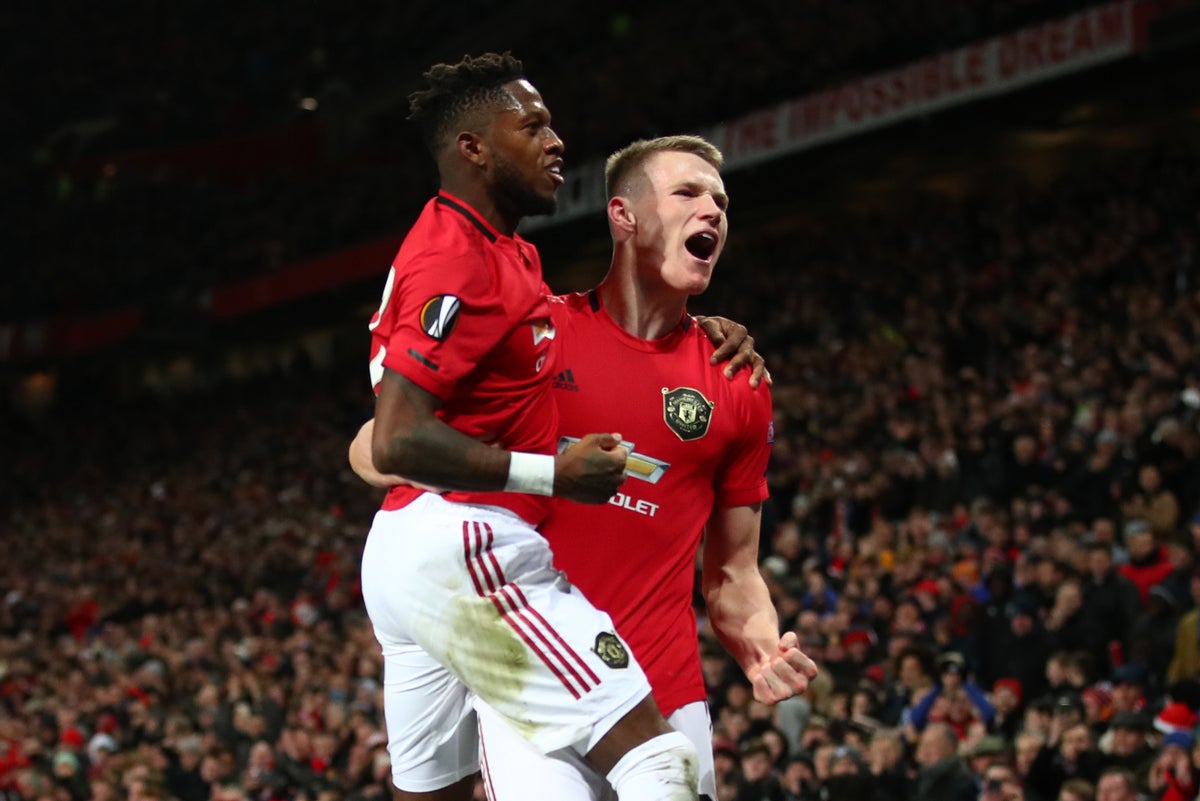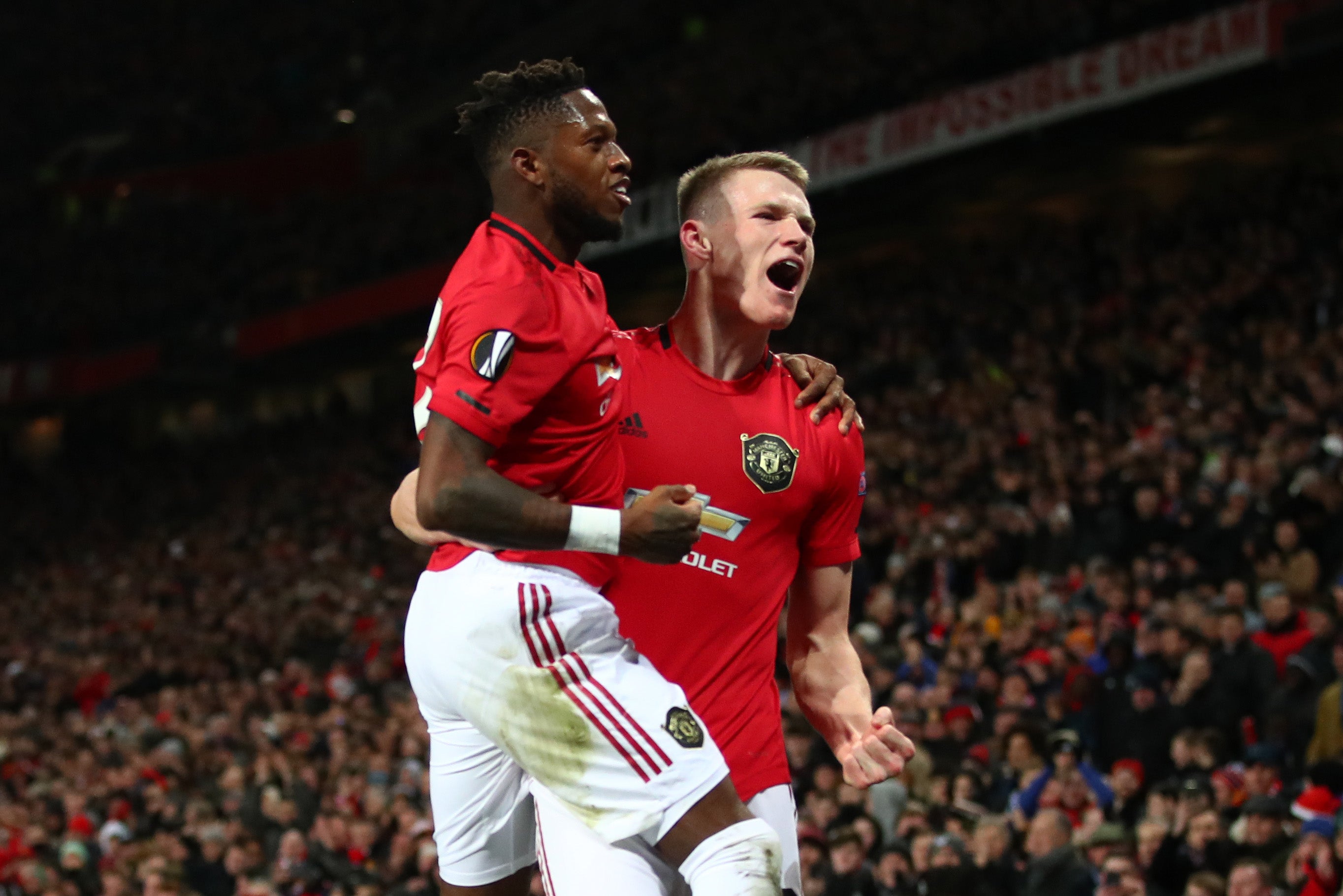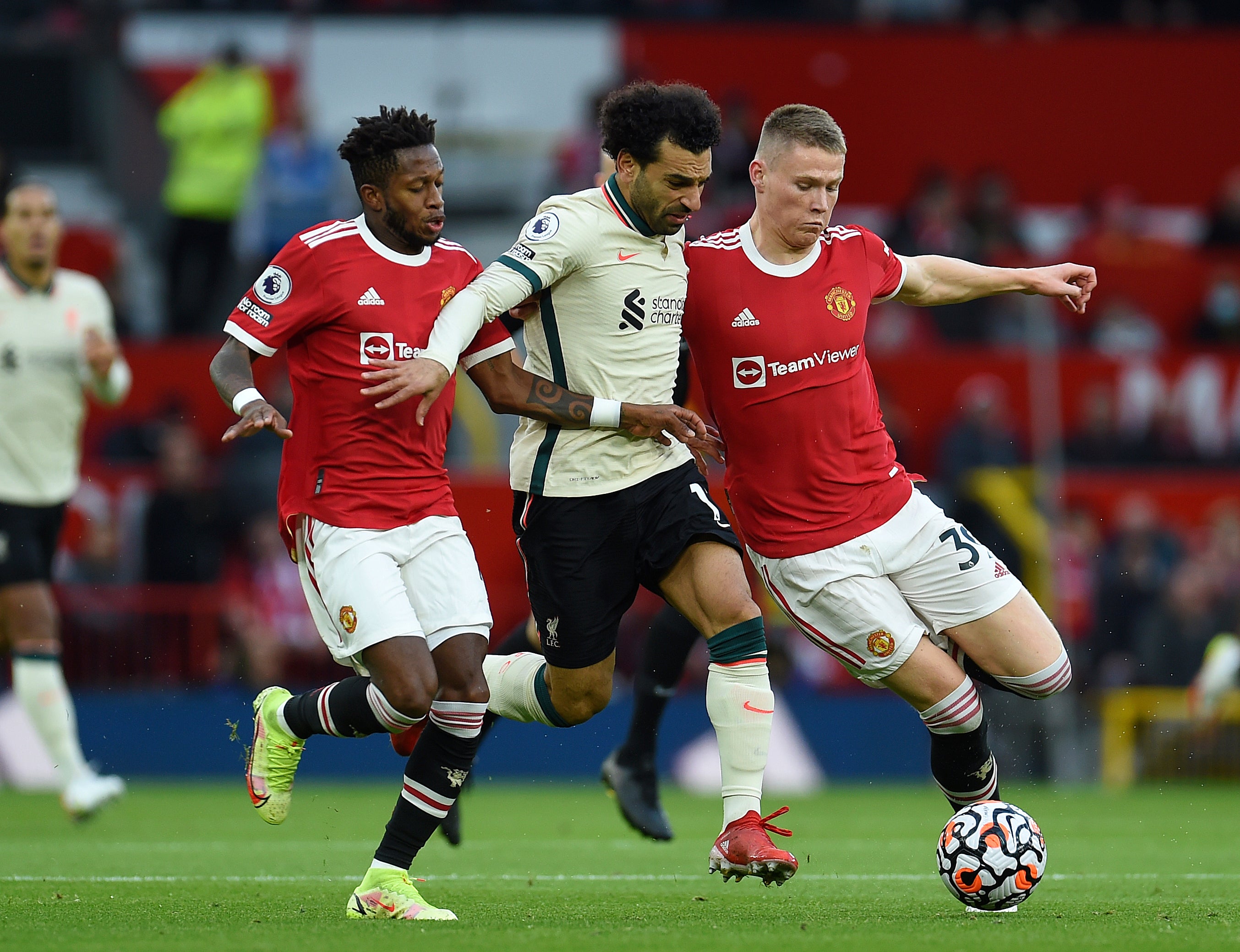
There were two great defensive midfielders with Manchester United affiliations at Old Trafford on Monday. Roy Keane seemed surprised that the new recruit Casemiro came over to hug him. Maybe the Brazilian was raised on tales of the Irishman’s heroics against Juventus in 1999. Perhaps he just wanted to dodge the kind of vitriolic appraisals Keane has delivered about Harry Maguire from the television studio. But maybe United’s most iconic captain sensed a kindred spirit.
Because until Casemiro arrived Keane could feel his legacy was not upheld. Arguably United’s last truly successful signing at the base of the midfield was Michael Carrick, who took Keane’s No 16 shirt when he arrived in 2006; for a few years, at least, Anderson threatened to take that mantle. But if Paul Scholes and Carrick are one of United’s two defining central-midfield partnerships since Keane departed, the other is Scott McTominay and Fred.
They have been United’s Xavi and Iniesta, their Pirlo and Gattuso: not, admittedly, in terms of talent or trophies because they were not Champions League or World Cup winners. But they were bracketed together, on the pitch and in the imagination.
And then, in an act of wanton vandalism, Erik ten Hag has spent his summer plotting to break up “McFred”. He spent months pursuing Frenkie de Jong. He tried for Adrien Rabiot, creating the delicious possibility United were building a McFrediot. He signed Christian Eriksen and then Casemiro. And if the former Real Madrid man’s transfer fee and contract amount to about £140m with no prospect of much resale value, that is a huge investment to end McFred.
The warning signs have been there for the duo. McTominay and Fred started Ten Hag’s managerial bow, just as they began Ralf Rangnick’s and Carrick’s. But the Brazilian was the first player substituted by the Dutchman; a week later, McTominay was the first dropped, as Eriksen was instead installed as a false six. Then Fred was omitted and the Scot returned, to excel against Liverpool as his running power came in handy.
Even if the renaissance of the McTominator proves a 90-minute affair, it was actually an advertisement of his merits. Rewind to happier days under Ole Gunnar Solskjaer, to the time when they were the scourge of teams with greater assurance on the ball and more refined tactics, and McFred were fundamental. Solskjaer’s twin wins over Paris Saint-Germain in France came with McFred; the first may have got the Norwegian a contract and was a breakthrough night for United’s odd couple. They won Manchester derbies at the Etihad Stadium; in one of them, McTominay scored from 40 yards. They won at Stamford Bridge and the Tottenham Hotspur Stadium.

Admittedly, it felt that the less of the ball they had, the better they could be. McFred’s skillset – running and hustling – made them more suited to games when they had less possession. McTominay has the attitude to play for United; just perhaps not the ability. Fred was one of the finest performers under Rangnick but contrived to remain strangely accident-prone, with his propensity for red cards and needlessly misplaced passes.
If, at times, it has seemed United couldn’t progress with McFred, they regressed without them. United won 55 percent of matches both started last season, and only 30 that one or neither began; in 2019-20, it was 58 percent with both, 48 without their alliance; in 2018-19, 50 when they were in harness, 49 when they were not. Only in 2020-21 was their win percentage lower when they were separated and, even then, they lost more games (24 percent to 14) without their shared willingness to do the dirty work. Relatively few of last season’s worst humiliations came with McFred side by side. They made United harder to beat and watch.
They have been Old Trafford’s great survivalists. They saw off the far more gifted Paul Pogba, sometimes exiling him to the bench or the left wing. Every summer, it seemed United would or should sign a superior midfielder, but they never did.

In part, it illustrated the recruitment policy of a club with a fixation on the rich and famous, who overloaded on high-profile attackers and neglected the back of the midfield. It was as though they were building a supergroup with a host of glamorous singers and guitarists but then just accompanied them with the most mundane drummer and bassist they could find.
McFred were the rhythm section and United lacked the passing rhythms of Manchester City. But McFred, with a magnificently ridiculous nickname that seemed to combine the innate tackiness of McDonald’s and Right Said Fred rendering them a still easier scapegoat, rarely felt the source of the problems in the dressing room.
At least they tried. It is an approach that means each should be suited to a role as an industrious back-up. Perhaps the preferred combination from now on will be Casemiro and Eriksen behind Bruno Fernandes. Maybe it will be one or the other, and Casemiro spoke of reviving his Selecao double act with Fred while McTominay’s display against Liverpool gives him a strong case to keep his place.
But if the era of McFred is ending, United should plan an appropriate tribute. They have celebrated men who have shaped their time at Old Trafford. And so, along with the statue of the Holy Trinity of George Best, Denis Law and Bobby Charlton, there should be one of McFred.







